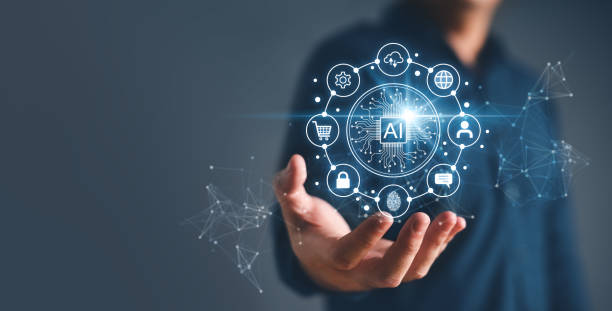Artificial Intelligence (AI) has swiftly transitioned from a concept of science fiction to an indispensable part of our daily lives. Its applications span across various sectors, revolutionizing industries, enhancing efficiency, and reshaping human interactions with technology. In this article, we delve into some real-world applications of AI and explore how they’re making a tangible impact.
Healthcare
AI is significantly transforming the healthcare sector, offering solutions that improve patient care, diagnosis, and treatment outcomes. One notable application is medical imaging analysis, where AI algorithms can detect abnormalities in scans with high accuracy, aiding radiologists in diagnosing conditions such as cancer at earlier stages.
Furthermore, AI-powered chatbots and virtual health assistants provide personalized healthcare support, offering advice, scheduling appointments, and even monitoring patients’ vital signs remotely. These innovations not only enhance efficiency but also extend healthcare access to remote areas.
Finance
In the financial industry, AI is revolutionizing operations, risk management, and customer service. Machine learning algorithms analyze vast amounts of financial data to detect fraudulent transactions, minimizing risk for both institutions and customers. Moreover, AI-driven robo-advisors offer personalized investment advice, helping people make informed financial decisions based on their goals and risk tolerance.
Natural language processing (NLP) enables sentiment analysis of news articles and social media feeds, providing insights into market trends and investor sentiment in real time. These AI applications optimize investment strategies and improve overall financial decision-making processes.
One application of AI in the real world, for example, is TrialView, an AI-powered platform for litigators, ensuring that users have all the necessary tools to digitally prepare for and conduct hearings efficiently and effectively.
Transportation
The transportation industry is experiencing a profound evolution through the incorporation of AI-driven innovations. Autonomous vehicles, armed with sophisticated sensors and AI algorithms, possess the capability to navigate roads, identify obstacles, and execute instantaneous decisions to uphold passenger safety. This advancement holds promise in reducing accidents and alleviating traffic congestion, while concurrently offering mobility solutions for people facing mobility challenges or with limited transportation accessibility.
In addition, AI-powered predictive maintenance systems actively monitor the condition of vehicles and infrastructure in real time, preemptively detecting potential faults before they escalate into breakdowns or accidents. By minimizing downtime and optimizing maintenance schedules, these systems elevate the efficiency and dependability of transportation networks, contributing to safer and more reliable travel experiences.
Retail
AI is revolutionizing the retail industry by transforming the shopping experience and streamlining business operations. Utilizing recommendation systems, AI analyzes customer preferences and past buying behaviors to deliver tailored product suggestions, thereby amplifying customer engagement and boosting sales. Moreover, virtual assistants equipped with advanced natural language understanding (NLU) capabilities efficiently address customer inquiries, enhancing service quality and operational efficiency.
Furthermore, AI-powered demand forecasting algorithms leverage historical sales data, market trends, and external variables to predict future demand with precision. This predictive capability empowers retailers to optimize inventory management strategies, mitigate stockouts, and reduce excess inventory, ultimately resulting in heightened profitability and increased customer satisfaction.
Conclusion
The real-world applications of AI are vast and diverse, permeating various aspects of our lives and industries. From healthcare and finance to transportation and retail, AI-driven technologies are revolutionizing operations, enhancing efficiency, and delivering personalized experiences. As AI continues to advance, its potential to address complex challenges and improve quality of life remains immense, heralding a future where intelligent systems augment human capabilities and drive innovation across all sectors.


